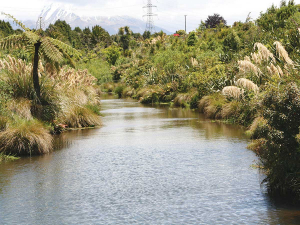Double Standard
OPINION: The proverbial has really hit the fan in Wellington and exposed a glaring example of a double standard in environmental accountability.
 Farmers will soon have an app to help them make better decisions about how to control erosion and reduce sediment entering waterways.
Farmers will soon have an app to help them make better decisions about how to control erosion and reduce sediment entering waterways.
Farmers will soon have an app to help them make better decisions about controlling erosion and reducing sediment entering New Zealand waterways.
This follows a four-year project supported by the Ministry for Primary Industries’ (MPI’s) Sustainable Farming Fund (now superseded by Sustainable Food & Fibre Futures). Developed via the ‘Don’t Muddy the Water’ project, led by Agrilink and NIWA, the app measures the impact of various practices for reducing sediment and phosphorus loss.
The app user is required to enter factors such as soil type, slope and location. Mitigations, such as vegetated buffer strips and sediment retention ponds, can then be added to assess the impact of these practices.
“The project came out of the need to put some numbers behind the performance of typical sediment control measures,” says Andrew Barber, managing director, Agrilink.
The project ran trials of different good management practices to test how best to keep soil in the paddock and out of waterways. This included measures such as cover crops, sediment retention ponds, vegetated buffer strips and wheel track dyking/ripping.
It found that 96% of large soil particles would be stopped by almost any sized pond. However, a minimum pond size of 50m3/ha was required to capture more than 80% of light suspended soil. These findings, along with work on vegetated buffer strips, were added to the app.
“Demonstrating the key control measures and collecting the data that can be used in our tool to calculate their effectiveness, has enabled a more cohesive approach nationally to soil management,” says Barber.
“It allows farmers to do a paddock risk assessment and subsequently prioritise their actions as part of their future Farm Environment Plans. The app also allows them to provide robust evidence to support consents or prove to regional authorities that their control measures are effective.”
Agrilink has been hosting workshops around the country to inform farmers about their findings.
Barber says the ‘Don’t Muddy the Water’ app is a tool to help decision-making. “Ultimately, this is a win-win for farmers and the environment.”
Steve Penno, director investment programmes at MPI, says the app is a practical tool that will help farmers take action to reduce their environmental footprint.
“This project has provided quality information on how erosion and sediment loss can be effectively mitigated, and the app makes this information available to farmers in a practical and useful way.”
The ‘Don’t Muddy the Water’ app will be free and is expected to be publicly available from February 2020.
New Zealand and Chile have signed a new arrangement designed to boost agricultural cooperation and drive sector success.
New DairyNZ research will help farmers mitigate the impacts of heat stress on herds in high-risk regions of the country.
Budou are being picked now in Bridge Pā, the most intense and exciting time of the year for the Greencollar team – and the harvest of the finest eating grapes is weeks earlier than expected.
The Real Estate Institute of New Zealand (REINZ) has released its latest rural property report, providing a detailed view of New Zealand’s rural real estate market for the 12 months ending December 2025.
Rural retailer Farmlands has released it's latest round of half-year results, labeling it as evidence that its five-year strategy is delivering on financial performance and better value for members.
OPINION: "We are back to where we were a year ago," according to a leading banking analyst in the UK, referring to US president Donald Trump's latest imposition of a global 10% tariff on all exports into the US.

OPINION: A mate of yours truly reckons rural Manawatu families are the latest to suffer under what he calls the…
OPINION: If old Winston Peters thinks building trade relations with new nations, such as India, isn't a necessary investment in…